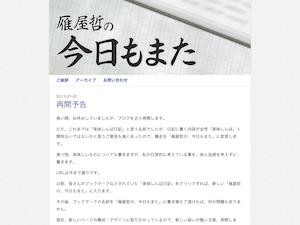Delivery
30 comments, 30Vote counting for Nago mayoral election = January 23, 2022, 21st century forest park gymnasium in Ominami 2-chome, Nago city, Okinawa Prefecture = Asahi Shimbun

In the mayoral election of Nago City, Okinawa Prefecture, which was voted on January 23, the incumbent who was recommended by the Liberal Democratic Party and Komeito was re-elected. Since 1996, when plans emerged to relocate the U.S. Futenma Air Station (Ginowan City) to Henoko, Nago City, the candidate's stance on this issue has always been a focus of attention in the Nago mayoral election. It's just that the incumbent mayor has not clarified his stance on the base relocation. Why did the citizens choose the current mayor? We will read the feelings of citizens from the opinion poll conducted by the Asahi Shimbun one week before the election day. (Asahi Shimbun reporter, Toshio Ishimoto) [Photo] A work created by a contemporary artist while being told to "get beaten up in Okinawa."
In the public opinion poll, we were asked to vote for the most important thing in four choices. "Regional development measures" accounted for the most at 50%, followed by "Futenma Air Station relocation issue" at 30%, "supporting political parties and organizations" at 9%, and "career and achievements" at 6%. Compared to the two previous surveys (2014) and the previous survey (2018), the increase in “regional development measures” is remarkable. %, and continued to decrease to 41% last time. During this period, while the issue of relocation became a point of contention that divided the city in two, the construction progressed steadily, and the government's stance remained unchanged. Many of those who emphasized "regional development measures" answered that they would vote for the incumbent, while many of those who emphasized "relocation issues" answered that they would vote for the opposition candidate. It may be fair to say that the change is backed up by the election results. ◇ Q: When deciding who to vote for in the mayoral election, what is the most important thing... This time = Futenma Air Station relocation issue 30% / Regional development measures 50% / Career and achievements 6% / Supporting political parties and organizations 9% Last time (2018) = Futenma Air Station relocation issue 41% / Regional development measures 39% / Background and achievements 8% / Supporting political parties and organizations 5% Two previous times (2014) = Futenma Air Station relocation issue 56% / Regional development measures 23% / Career and achievements 7% / Supporting political party or organization 3% We investigated voters in Nago City using the RDD method, which dials a landline phone number randomly generated by a computer. This time, it was conducted on January 16th and 17th, and responses were obtained from 474 people. 54% response rate. In 2018, the survey was conducted on January 28 and 29, and responses were received from 673 people. 47% response rate. In 2014, the survey was conducted on January 12th and 13th, and responses were received from 860 people. 55% response rate. Results of the Nago mayoral election (voting percentage) this time = LDP candidate 57% / relocation anti-relocation candidate 43% Last time (2018) = LDP candidate 55% / relocation anti-relocation candidate 45% Last year (2014) = LDP candidate 44% / Candidates opposed to relocation 56% *Rounded to the nearest whole number
Next page: Voice of "Others/No answer"Page 1/2
Last updated:withnews